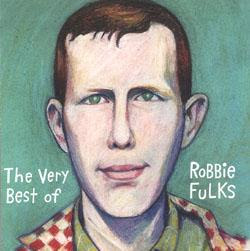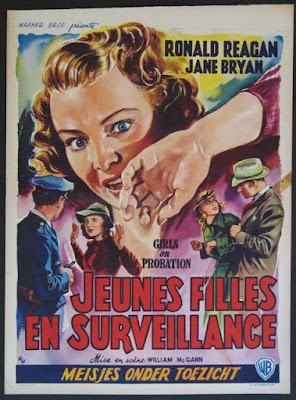Destination . . .
 . . . CHICAGO!
. . . CHICAGO!
A few months ago, I received an email from one Robbie Fulks, esq, a talented singer, songwriter and guitarist whom I have long admired.

From time to time, Robbie invites various musicians to the Old Town School of Folk Music in Chicago where he puts on concerts that he later broadcasts on his XM Radio* show, "Robbie's Secret Country." His email informed me that on December 9, he intended to devote one of these concerts to the music of The Carter Family, a subject upon which I am an expert, or at least a blowhard. Would I be willing to come to Chicago to be interviewed on stage? If so, he was prepared to pay me the astounding sum of $300; and if I would condescend to appear at a second concert on the same day, the gratuity would be correspondingly doubled.
Now, talking is one of my favorite diversions and rarely do I receive this sort of encouragement, so I said 'yes' without hesitation. On December 8, I jetted to the City of the Big Shoulders, landing at O'Hare Airport at precisely noon. Despite the cash windfall Robbie was about to lavish upon me, I was in an economical mood and made one of the greatest errors of my error-filled life: I decided to take public transportation from the airport to my hotel.
Nearly a week has passed and I am still recuperating from this ordeal, but the healing process has been hastened considerably by an exchange of emails with Alison Perona, Inspector General of the Chicago Transit Authority, which I reproduce below in its genuine entirety:
Dear Inspector General:
How are you? I am fine. I live in Boston and recently visited Chicago for the first time in many years. I decided to try your service from the airport and it was, I think, an unnecessarily distressing experience, which I know you did not intend and would not wish to see repeated.
Here is what happened: After retrieving my suitcase from baggage claim, I followed the signs to the subway and stepped up to a pass-dispensing machine to purchase a pass. I had five twenty-dollar-bills and $1.75 in change. As you probably know, the subway costs $2, so I put one of the twenties in the machine and asked it for a $2 ticket. However, the machine did not give me a ticket. It simply looked back at me as though I was stupid and reminded me that I had just given it $20, which I already knew. Fortunately, a nice man came up behind me and said: "That thing don't give change." Not being from Chicago, I reached for my wallet and pulled out a credit card, only to hear the same nice man (and he was a nice man, as you shall soon see) say: "It don't take credit cards neither." Looking about me, I saw a gaggle of out-of-towners like myself, staggering around like zombies, holding out large bills and begging Chicagoans for change. Fortunately for me, the nice man was nice enough to give me a quarter.
So here's my first question: Is it really true that your subway machines don't give change or take credit cards? Because I have lived in Boston, New York and Washington, three cities that, in many ways, have nothing on you, I'm sure, but all of which allow commuters to both use their credit cards and receive change for large bills.
Now, here's another pickle I'd like you to think about: The train ride from the airport to my hotel in Rogers Park took an excruciating two-hours-and-twenty-minutes (this is not a typo.) I spent most of the trip recalling cliches about slowness - "slow as molasses in January," "I'm coming, and so is Christmas," etc - and there were several annoying incidents along the way that dragged out the journey even further.
For instance, just three stops into the trip, we were all hustled out of the train and loaded onto a tightly-packed slow-moving shuttle bus where I was forced to listen to a very nasty man fulminate against illegal immigrants. He said that unless Mexico stopped "sending us" illegal immigrants, we should invade it and remove its leaders. Evidently, he believes this strategy is working so well in Iraq that we should try it out on other countries that threaten our security by being poor. Please find this man and waterboard him.
Anyhoo, eventually the bus rolled up to the next stop and unloaded us and we waited another ten minutes for another train that moved along at an average speed of, I'd say, 6-1/2 miles-per-hour. That train, however, was like the Georgia Mail compared to the train I transferred to, I believe on the cheerlessly-named "Brown Line." What was truly impressive was that this Brown Line train achieved extraordinary depths of slowness while skipping as many stops as it stopped at, much to the fury of my fellow passengers, most of whom were Chicagoans and probably deserve better.
So here is my second question: Is there some way that you could let me know when these various annoyances are corrected, so that I can return to Chicago under more pleasant circumstances?
Many thanks for your kind attention to these questions. I am sure you will appreciate that they are offered in a spirit of friendly encouragement.
Very truly yours, etc.
I am delighted to report that, in less than 24 hours, I received the following reply:
Dear Mr. Hirshberg,
On behalf of the CTA, I apologize for the inconveniences you experienced on your trip to Chicago.
The CTA is currently engaging in massive reconstruction and improvement projects, most notably on the Blue and Brown Lines. If you check the CTA's website http://www.transitchicago.com/, you can follow the progress of these projects.
I have forwarded your e-mail to the relevant departments so that all of the issues presented can be reviewed.
N.B. The President's authorization to use "extreme tactics" on enemies of the United States does not permit the CTA to waterboard obnoxious customers, no matter how annoying they are.
Alison Perona
Inspector General
Needless to say, I was more than satisfied with every aspect of this reply - except one, which I called to Ms. Perona's attention in a subsequent email, to wit:
Dear Inspector General:
I could scarcely have hoped for a more prompt, professional and gratifying response to my email of 12/13. However, I do wish to call your attention to one unfortunate bobble on your part. You wrote: "The President's authorization to use 'extreme tactics' on enemies of the United States does not permit the CTA to waterboard obnoxious customers." I am sure that is true, for the time being. But please note that the President's policy authorizes ENHANCED tactics of interrogation, not EXTREME ones. Waterboarding is an enhancement, not an extremity.
Nonetheless, your email has greatly enhanced my impression of Chicago in general, and the CTA in particular.
Gratefully yours, etc.
It only remains for me to recount to you, the interested reader, the remaining highlights of my visit to Chicago. On Sunday morning, I dressed in conservative blue, found the Old Town School of Folk Music and asked to be taken to Mr. Robbie Fulks, which was accordingly done. Robbie was leading a small ensemble in a song called "I've Got a Home in that Rock" and enjoying himself hugely; but the moment he turned his head in my direction, his enjoyment evaporated. It was obvious that he did not recognize me and would have been happy to continue not recognizing me for the rest of his life.
This was understandable and, indeed, typical. My appearance is such that it produces unsettling sensations in strangers, especially women. Indeed, it happens so frequently that I rarely become rattled in these situations. I was quite sympathetic to Robbie, as my face-and-figure pose particular problems to a professional entertainer who has committed himself to appearing with me on the stage. On the other hand, I had exchanged enough emails with Robbie to optimistically consider him my friend. But on another hand, I realized that I had only actually met him once, at my ex-brother-in-law's wedding seven-or-eight years ago.
"'It's me," I explained, extending my hand aggressively, "Charles 'Chuck' Hirshberg."
Had I announced myself as his blind date, Robbie Fulks could not have been more disappointed. He stared at the neck of his guitar in an agony of embarrassment as he shook my hand.
"It's been a long time," I pointed out, helpfully.
"Ya," he mumbled, "since our, um, . . . wedding."
I tried changing the subject. "Am I dressed okay?" I asked.
He looked at my clothes and snorted: "You're over-thinkin' this."
For the next few hours, Robbie energetically avoided me until it was time to invite me onstage for the interview, which went rather well, I thought. Robbie is unnecessarily tall and I am imprudently short and the audience seemed to enjoy the Mutt-and-Jeff aspect of our conversation. So at the end of the second show, when Robbie invited me on stage to sing a verse of "Worried Man Blues," I thought he had begun to accept me. I had a slight cold and sang my verse in a gruff, down-home growl that the audience applauded with great sympathy. A few days later, I wrote Robbie, asking for a recording of my performance. He replied thus:
"The channel on the mike you sang through was not turned on. You can hear your vocal a little bit as bleed through the other mikes. But mostly, you can hear me laughing sinisterly, like Eddie Murphy, through a mike that is on."
Ah, well. At least that explains the audience's enthusiastic applause: They couldn't hear me.
----------
*XM is a satellite radio service that works like this: First, you purchase a special XM radio receiver for about $600; then you pay a fee of approximately $600 a month, which may seem like a lot, but you get to listen to your choice of 46,000 channels, each of them broadcast by satellite to ensure perfect stereophonic clarity. A rival service, Sirius Radio, charges twice as much and offers only 23,000 channels, but one of them features Howard Stern. Decisions, decisions . . .
-cc-






.jpg)
.jpg)




















 someday, my baby, when i am a man
someday, my baby, when i am a man






